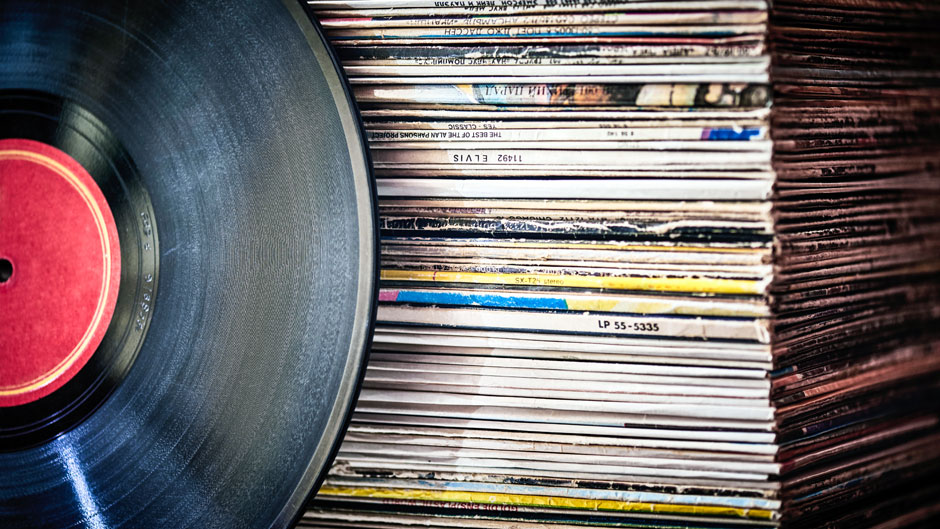
A Decade Of Rhythm: Nigerian Music In The ’70s
The aftermath of Nigeria’s Civil War marked a pivotal moment in the country’s music scene. Juju music thrived in the West, while highlife music dominated the East due to the migration of many Eastern-origin highlife pioneers during the war. Post-war Nigeria, however, gradually embraced a more experimental musical landscape. This period saw the infusion of funk, soul, and Afrobeat into mainstream sounds. Despite these influences, one unifying theme prevailed: Nigerians skillfully blended global genres with their cultural and traditional elements, creating music that was distinctly their own. In many ways, the Nigerian music of the ’70s was a product of experimentation.
This week, we delve into the rich and evolving music of the 1970s. As always, our exploration concludes with a carefully curated playlist for you.
While iconic 1960s artists like I.K. Dairo, Osita Osadebe, Victor Uwaifo, and Rex Lawson maintained their stardom across various genres, new musicians began to emerge, with sounds that were a little different from what was familiar.
Music of the ’70s
The Rise Of Igbo Highlife
As highlife musicians concentrated in Eastern Nigeria, artists like The Oriental Brothers, Oliver de Coque, and Sir Mike Ejiagha developed a distinct Igbo highlife sub-genre. They infused traditional instruments, cultural themes, and Igbo-centric elements to resonate deeply with their audiences.
The Oriental Brothers
The group was formed in the late 1960s and included Godwin Kabaka Opara, Ferdinand Dan Satch, Emeka Opara, and Nathaniel Ejiogu. They became synonymous with Igbo highlife, and their popularity grew post-civil war influenced by traditional Igbo melodies and blended with lyrics of resilience and hope.
Oliver De Coque
Oliver De Coque was known for incorporating the Ogene (a traditional instrument) in his performances and for his remarkable guitar technique. The Nnewi-born musician started his music career in the 1970s. He is hailed as the “Highlife King of Africa,” and produced an extensive catalog of albums that remain timeless party staples.
Sir Mike Ejiagha
Nicknamed “The Gentleman,” Sir Michael Nwachukwu Ejeagha infused Igbo folktales into his music, offering moral lessons with every track. Starting his career in the 1960s, his influence extended into the 2000s, with younger generations rediscovering his music through social media virality.
Juju Music Refinement
Juju music entered a new era in the 1970s with artists like King Sunny Ade introducing modern instrumentation, including electric guitars and synthesizers, creating a polished sound that appealed to local and international audiences.
King Sunny Ade
Born Sunday Adeniyi Adegeye, he began his career in the 1960s with Moses Olaiya’s Federal Rhythm Dandies. He revolutionized juju music with innovative sounds, earning Grammy nominations and global recognition as the “King of Juju Music.”
Nigerian Afrobeat
The 1970s also marked the rise of Afrobeat, spearheaded by Fela Kuti. His Africa 70 band popularized this genre, which fused Yoruba rhythms with jazz and funk into a sound that is as timeless as it was revolutionary.
Fela Kuti
Olufela Olusegun Oludotun Ransome-Kuti formed his band Koola Lobitos in the 1960s. By the 1970s his music evolved to critique corruption and advocate for cultural pride. Fela’s socio-political lyrics often put him at odds with Nigerian authorities, but it was his fearless activism and unwavering advocacy that solidified his enduring legacy.
Funk And Soul Music
The 1970s welcomed funk and soul into Nigerian music. Bands like The Funkees fused African rhythms with Western influences to create Afro-rock and funk-inspired sounds.
The Funkees
An Afro-rock band formed in the 1970s, The Funkees blended highlife, funk, and soul. Despite relocating to the U.K. in the ’70s they retained their influence on the Nigerian music scene, captivating audiences with their fusion of psychedelic rock and traditional Nigerian elements.
Sweet Breeze
Sweet Breeze was a band active during the 1970s and early 1980s. They were popular for blending R&B, soul, and rock influences with African rhythms. The band featured members like Dallas King Anyanwu, Jackie Moore Anyaorah, and Bazy Cole Akalonu, leaving a lasting impression with their unique sound.
Afro-Jazz Fusion
Jazz found a bold voice in 1970s Nigeria, with artists like Orlando Julius blending African rhythms with jazz to create Afro-jazz, characterized by intricate horn arrangements and soulful melodies.
Orlando Julius
A renowned multi-instrumentalist and pioneer of Afro-Jazz, Orlando Julius began his career in the 1960s. Over the decades, he significantly influenced funk and soul, leaving a profound legacy that endures beyond his passing in 2022.
A Playlist From the ’70s
-
- Ihe Onye Eche – Oriental Brothers
- Onye Ori Utaba – Mike Ejiagha
- I Salute Africa – Oliver De Coque
- Nwa Ada Di Mma – Oriental Brothers
- Ibanuje Mon Iwon – King Sunny Ade
- Ogun Party Part 1 – King Sunny Ade
- Shakara – Fela Kuti
- Alo Mi Alo – Orlando Julius
- Ka Esi Lee Onye Isi Oche – Mike Ejiagha
- Jaguar Nana – Orlando Julius
- Ife Chi Kwulu Geme – Oliver De Coque
- Zombie – Fela Kuti
- Akula Owu Onyeara – The Funkees
- Slipping Into Darkness – The Funkees
- Selma to Soweto – Orlando Julius
- She’s My Choice – Sweet Breeze
- Afai Bowon – King Sunny Ade
- Chi Awu Otu – Oriental Brothers
- Synchro System – King Sunny Ade
- Water No Get Enemy – Fela Kuti
- Miss Patience (Without Patience) – Sweet Breeze



